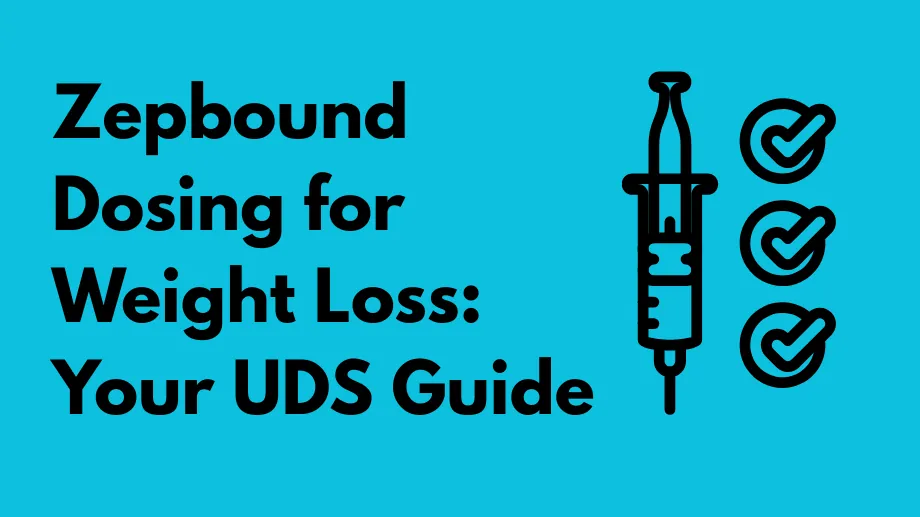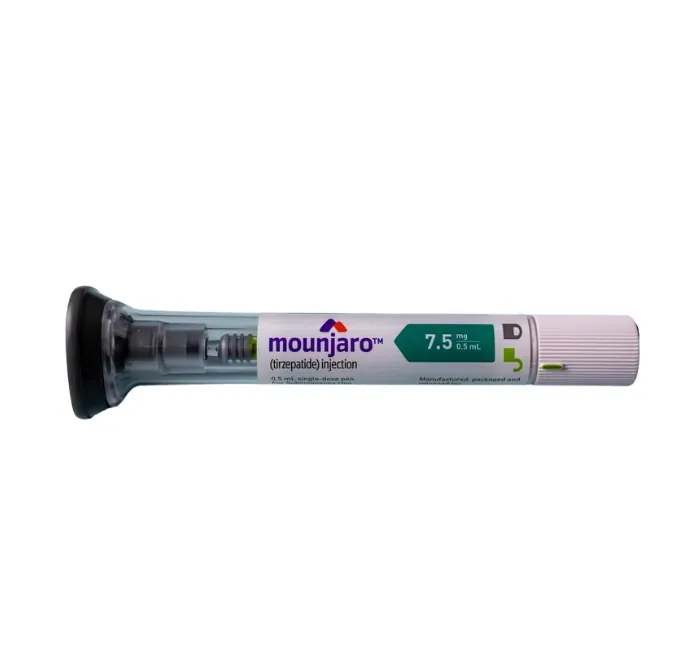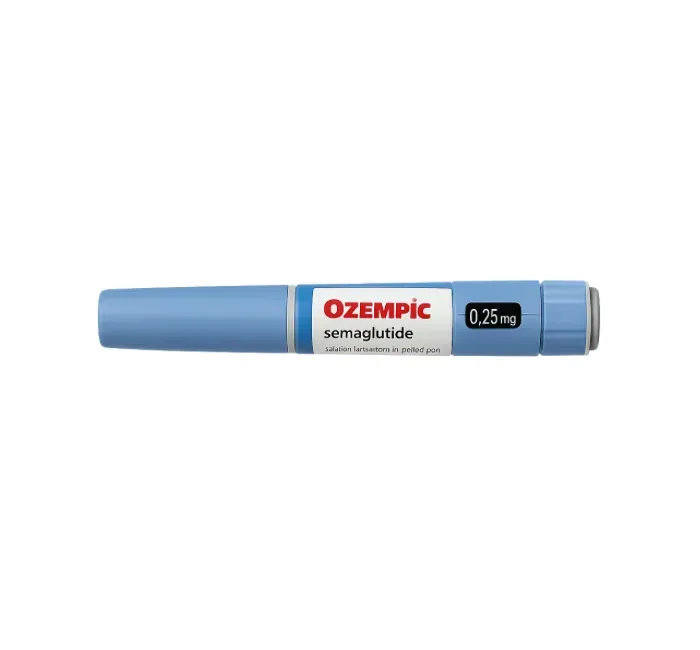Zepbound dosing for weight loss

Zepbound (tirzepatide) is a once-weekly subcutaneous (under the skin) injection that is FDA-approved for chronic weight management in adults. It can also be used to treat obstructive sleep apnea (OSA) in adults with obesity. The active ingredient, tirzepatide, is used to treat type 2 diabetes under the brand name Mounjaro.
Because Zepbound can cause gastrointestinal (GI) side effects like nausea and diarrhea, your healthcare provider will start you at a lower dose and then increase it so your body can get used to the medication. Knowing the dosing schedule for Zepbound is important so you take the right dose and minimize any side effects. Read on to learn the typical dosages of Zepbound for weight loss and sleep apnea. However, you should always follow your provider’s instructions if they differ from the following.
What is the recommended dosing schedule for Zepbound?
You should inject Zepbound once weekly on the same day each week. It is available as a prefilled, single-dose pen that comes ready to use. The Zepbound pen comes in 2.5 mg, 5 mg, 7.5 mg, 10 mg, 12.5 mg, and 15 mg doses. Certain doses are also available as a single-dose vial that you will draw up using a syringe. You can inject Zepbound under the skin of your abdomen, thigh, or upper arm.
The recommended starting Zepbound dose for obstructive sleep apnea and weight loss is 2.5 mg once weekly for 4 weeks. After 4 weeks on the 2.5 mg dose, your healthcare provider will typically increase your Zepbound dose to 5 mg once weekly for another 4 weeks.
At week 9 and beyond, your weekly dose of Zepbound may be raised again every 4 weeks, depending on what you are using it for and how you respond to it. It is recommended to increase your current dose by no more than 2.5 mg at once. The typical maintenance dose for weight loss is 5 mg, 10 mg, or 15 mg once weekly. The recommended maintenance dosage for sleep apnea is 10 mg or 15 mg once weekly. The maximum dose for both weight loss and sleep apnea is 15 mg of Zepbound once weekly.
It is important to follow your provider’s specific instructions on how you should use Zepbound. It should also be noted that Zepbound should be used along with a reduced-calorie diet and increased physical activity.
What should you do if you miss a dose of Zepbound?
If you miss a dose of Zepbound, it is an easy fix. How you handle this will depend on when you remember. If it has been less than 4 days since your missed dose, inject Zepbound as soon as you remember. You can then inject your next dose of Zepbound on its scheduled day. If it has been more than 4 days, you should skip the missed dose. On your next scheduled injection day, take Zepbound. You can then get back on your regular weekly schedule. You should never take extra doses to make up for missing a dose.
How much weight can you lose on Zepbound in a month?
Zepbound is one of the most effective weight-loss medications on the market today. During clinical trials, people taking Zepbound lost an average of 15% to 21% of their starting body weight after 72 weeks. This equals around 34 lbs to 48 lbs of weight loss. This weight loss is dose-dependent, so those taking the maximum dose (15 mg weekly) lost more than those taking lower doses (5 mg to 10 mg weekly).
Two other trials also showed even more significant weight loss after 72 weeks, with people losing around 25% of their starting body weight.
What is Zepbound used for?
Zepbound (tirzepatide) is approved by the Food and Drug Administration (FDA) as a weight loss medication, along with diet and exercise, for adults:
Shop Medications
- With a body mass index (BMI) of 30 kg/m2 or higher (obesity)
- With a BMI of 27 kg/m2 or higher (overweight) with at least one weight-related medical condition such as high cholesterol, high blood pressure (hypertension), type 2 diabetes, or heart disease
It is also approved to treat obstructive sleep apnea (OSA) in adults who are considered obese.
Who should not use Zepbound?
You should not use Zepbound if you have a personal or family history of thyroid cancer or tumors, Multiple endocrine neoplasia syndrome type 2, or a known allergy to tirzepatide or other ingredients in Zepbound.
How does Zepbound work?
Tirzepatide, the active ingredient in Zepbound, is a glucose-dependent insulinotropic polypeptide (GIP) and glucagon-like peptide-1 (GLP-1) receptor agonist. It works a little differently than GLP-1 agonists like Ozempic/Wegovy (semaglutide).
Zepbound acts like GIP and GLP-1, two hormones released in your gut in response to food. These two hormones target areas in your brain to help decrease appetite and slow down digestion to help you feel full faster and longer. This can help you eat less and lose weight. They also stimulate your pancreas to release insulin, which reduces your blood sugar levels.
What are the side effects of Zepbound?
The most common side effects of Zepbound seen in clinical trials as compared to placebo include:
- Nausea
- Vomiting
- Constipation
- Diarrhea
- Abdominal pain
- Indigestion
- Fatigue
- Gas
- Hair loss
- Injection site reactions
You may experience serious side effects while using Zepbound, some of which may require immediate medical attention. This includes:
- Worsening diabetic retinopathy in people with type 2 diabetes
- Depression or suicidal thoughts
- Symptoms of a serious allergic reaction like swelling of the face, tongue, or throat, shortness of breath, and hives
- Severe low blood sugar (hypoglycemia), especially if taken with diabetes medications such as insulin or sulfonylureas
- Gallbladder problems, such as gallstones
- Pancreatitis (inflammation of the pancreas)
- Dehydration and kidney damage
- Increased risk of thyroid cancer or thyroid tumors, including medullary thyroid carcinoma (MTC), with symptoms such as a mass in your neck, trouble swallowing or breathing, and persistent hoarseness
These are not all of the possible side effects of Zepbound. You should always seek medical advice from your healthcare provider for any questions or concerns about your medical condition or treatment. Read all prescribing information, medication guides, or drug information sheets that come with this medication. You can also report adverse effects to the Food and Drug Administration at www.fda.gov/medwatch or 1-800-FDA-1088.
Sources
- Zepbound (tirzepatide) Injection, for subcutaneous use. Eli Lilly and Company. Last updated 12/2024. Accessed May 5, 2025.
- Tirzepatide demonstrated significant and superior weight loss compared to placebo in two pivotal studies. Eli Lilly and Company. (2023). Accessed May 5, 2025.
- Jastreboff, A. M., et al. (2022). Tirzepatide once weekly for the treatment of obesity. The New England Journal of Medicine. Accessed May 5, 2025.











